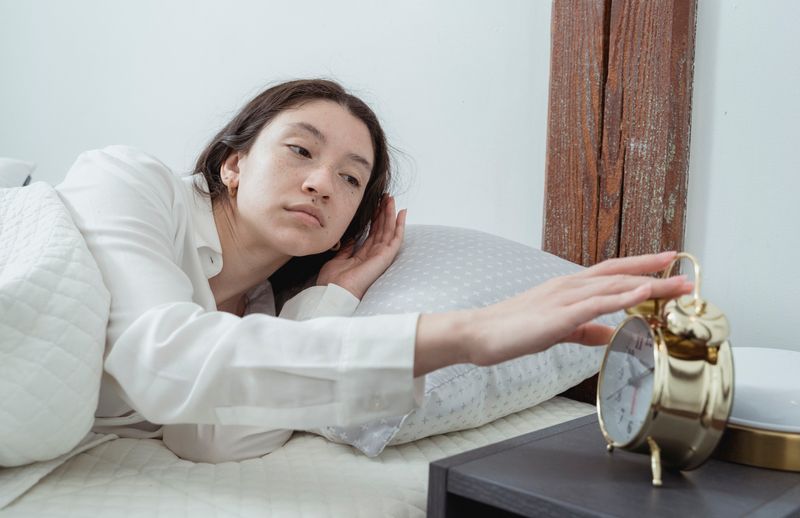Daylight Saving Time and its Impact on Mood
The end of daylight saving time is approaching, and although a change in one hour may not seem significant, it can have profound effects on our mood. According to Lina Begdache, an assistant professor of health and wellness studies at Binghamton University, State University of New York, this shift in time disrupts our circadian rhythm, the internal clock that regulates our sleep-wake cycle and influences brain and body functions. In this report, we will explore the correlation between daylight saving time changes and our mood, discuss who is more susceptible to negative mood changes during this time of year, and provide advice on how to prepare for or prevent these changes.
The Circadian Rhythm and Mood
The circadian rhythm plays a crucial role in regulating various brain and body functions. Disruption in this cycle can lead to changes in mood. When the transition from daylight saving time occurs, our internal clock is misaligned with the amount of daylight we are exposed to, potentially impacting our sleep quality. Research suggests that sleep disturbances during this transition can lead to metabolic disturbances and alterations in mood.
Susceptibility to Mood Changes
Not everyone is equally affected by the change in time. Individuals with a predisposition to mood disorders and those with lighter sleep are more susceptible to negative mood changes during this period. Interestingly, studies have shown that women tend to have a shorter circadian rhythm of melatonin, the brain chemical that controls the sleep-wake cycle. As a result, time transitions can have a greater impact on their mood. Research conducted by Lina Begdache herself has found that women have a higher risk of mental health disorders in spring and fall.
Preparing for the Time Change
There are several steps that individuals can take to prepare for or prevent the negative effects of the time change on mood. First, paying closer attention to sleep quality during the transition period is crucial. Avoiding stimulants such as caffeine and exercising close to bedtime can help regulate the sleep-wake cycle. It is also recommended to avoid exposure to blue light and heavy meals at least 2-3 hours before bedtime. While alcohol is a depressant, it can also disrupt the sleep-wake cycle, so it is best to avoid it during this time.
Nutrition and Lifestyle Practices
Making positive changes in nutrition and lifestyle practices can also have a significant impact on sleep quality and mood. Exercising during the day can help the brain produce more melatonin at night, promoting better sleep. A balanced diet that includes complex carbohydrates and healthy proteins can also support the production of melatonin. However, it is important to note that following a low-carb diet can negatively affect sleep quality. Additionally, implementing a downtime regimen before bed can help reduce stress, which also affects sleep quality. Maintaining a regular bedtime is crucial for mood regulation, as the circadian rhythm and the clock genes responsible for it are sensitive to changes in wake-sleep cycles.
Conclusion
The end of daylight saving time can have a significant impact on our mood due to its disruption of the circadian rhythm and sleep patterns. It is important for individuals to be proactive in preparing for this transition by paying attention to their sleep quality, avoiding stimulants, and adopting healthy nutrition and lifestyle practices. By taking these steps, individuals can mitigate the negative effects of the time change and maintain their emotional well-being.

<< photo by Miriam Alonso >>
The image is for illustrative purposes only and does not depict the actual situation.
You might want to read !
- The Potential Disappearance of Gwyneth Paltrow: Selling Goop’s Consequences
- Editorial Exploration: Taking a somber look at the devastating loss of four Pepperdine University students in a tragic Malibu PCH crash, examining the impact on the university and the community at large, and investigating the factors that led to the accident.
Title: Tragedy Strikes Pepperdine: Remembering the Fallen Students of the Malibu PCH Crash
- Former Trump Lawyer Sidney Powell Pleads Guilty in Georgia: Exploring the Legal Repercussions and Political Implications
- The Toll of Daylight Savings Time on Road Safety: Analyzing the Impact on Car Accidents
- The Secrets Unveiled: Decoding Today’s Wordle puzzle #796
- The Anticipation and Speculation Surrounding the Release of Diablo 4 on Xbox: Release Date, Release Times and Download Size
- Exploring the Sword-Wielding Seas: Streaming “Our Flag Means Death” Season 2 on Max
- “Unleashing the Power of AI: Exploring the Google Pixel 8 and Pixel 8 Pro”
- “The Struggle for Greatness: Unraveling the Ambitions of Martin Scorsese’s ‘Killers of the Flower Moon’”
- Osage Trails: Martin Scorsese’s Change of Heart




